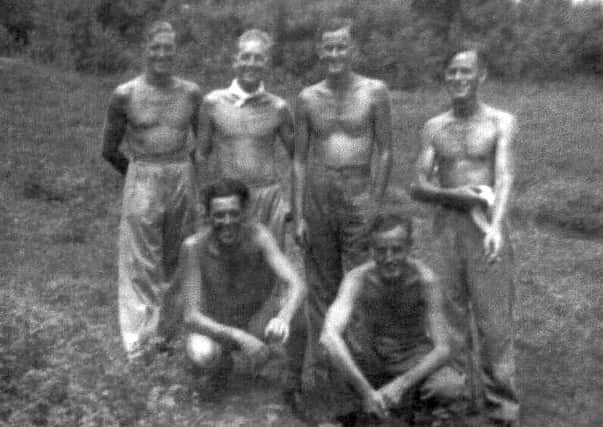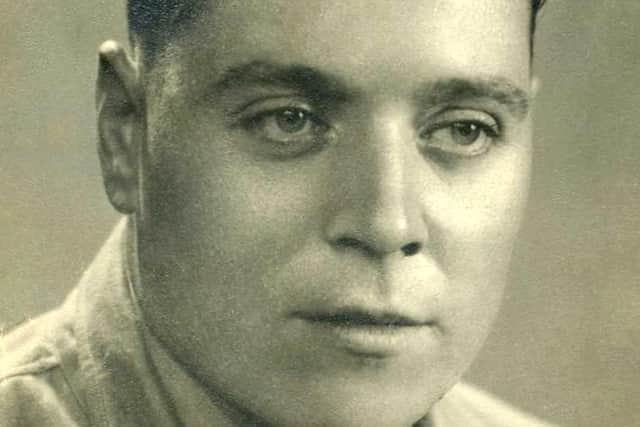The Nostalgia column with Margaret Watson: Memories of the Far East’s Forgotten Army


While thousands of them were still fighting in Burma or incarcerated in brutal prison camps, the world was rejoicing that the war in Europe was over.
It was nearly a year after peace had been declared that some of those prisoners were able to get home to their loved ones.
Advertisement
Hide AdAdvertisement
Hide AdLast weekend was the 75th anniversary of VJ Day – Victory in Japan – and some of those who fought in the Far East were interviewed on television. Their stories were harrowing.


Some years ago I interviewed one such prisoner, Les Main, of Batley Carr, on his 90th birthday, and he still held graphic memories of his years in various Japanese prison camps.
Les celebrated his 21st birthday on the day war broke out – September 3rd 1939 – and he immediately volunteered to go and fight.
He joined the RAF, became an air gunner, and when his platoon asked for volunteers to go overseas, he was again first to put his hand up. He would later jokingly tell his children – “Never volunteer for owt”.
Advertisement
Hide AdAdvertisement
Hide AdLes, who was based in Singapore, was injured by shrapnel when the Japanese bombed the island in 1941, the same day they had bombed Pearl Harbour.


“I was lying in a hospital bed when the Japanese landed.
“They just bundled me and the other soldiers into cattle trucks and took us to a prison camp.
“We were 40 to a truck and the camp was hundreds of miles away.
“We were set to work on the Burma railroad, and when we wore out our boots we had to work in bare feet. We lived off rice with the occasional bit of meat.
Advertisement
Hide AdAdvertisement
Hide Ad“We used to dream of food every night. If we didn’t finish the work they’d set us, we were made to work through the night.
“We’d get back to camp at six in the morning and be sent straight back to do another full day.”
Les moved from camp to camp but he didn’t talk about his experiences for many years afterwards, and when he did, he didn’t like talking too graphically about the suffering and punishments he and his comrades suffered.
“We arrived at one camp to find all the British soldiers had died of typhoid. We were made to pile their bodies up and burn them. We felt rage and bitterness but there was nothing we could do.”
Advertisement
Hide AdAdvertisement
Hide AdLes never kept count of the times he and the other men were beaten by the guards. He was once beaten so badly he was admitted to hospital.
Les recalled: “The guard just went berserk. He beat me with an axe handle, knocking me from one end of the room to the other.
“I was lying on the floor when he came at me again, and I thought, that’s it – I’m dead. All I’d done was accidentally knock a shovel resting against a wall which caught him as it fell.”
In 1944 Les was taken to Saigon in Vietnam where he and the other prisoners were set to building aerodromes for the Japanese.
Advertisement
Hide AdAdvertisement
Hide AdLes could never understand how so many of them managed to survive the brutal regime and the vicious beatings dished out two or three times a day.
He said: “We were sick and starving and I didn’t know how we didn’t all die.”
Les suffered from beri-beri and malaria and was near death many times, but he stubbornly refused to give in. He was determined not to die in that place.
“I saw a lot of my mates die but I kept saying to myself I’d get out. I was going home to my mother – I never doubted it once. I just kept telling myself, no matter what happened, I wasn’t going to die there.”
Advertisement
Hide AdAdvertisement
Hide AdThe war had been over three months before Les and his comrades were given the news.
“Two of our officers came in one day and told us it was all over.
“The whole camp just went crazy.
“The Japanese officer in charge handed his sword to our sergeant major who just broke it in half and threw it in his face.
“If we’d stayed there a few weeks longer we’d all have been shot.
Advertisement
Hide AdAdvertisement
Hide Ad“The order had already been given to kill every one of us because there wasn’t enough food.”
After the war Les, who was six foot and weighed only six stone when he was released, returned to his job in the dyeworks at Tattersfield’s mill in Dewsbury Moor.
He met his wife Doris there, and they were happily married for 60 years and had three children.
After the war food was still rationed, but being an ex-prisoner, Les was allowed double rations – but it was to be five years before he regained his health completely.
Advertisement
Hide AdAdvertisement
Hide AdIn my interview with him, Les admitted he was bitter against the Japanese for many years. “But then I started to realise it was no use being bitter because I couldn’t do anything about it. I couldn’t bring back the lads who had died.
“It just happened and it couldn’t be undone. Now I just think – it’s all over.”